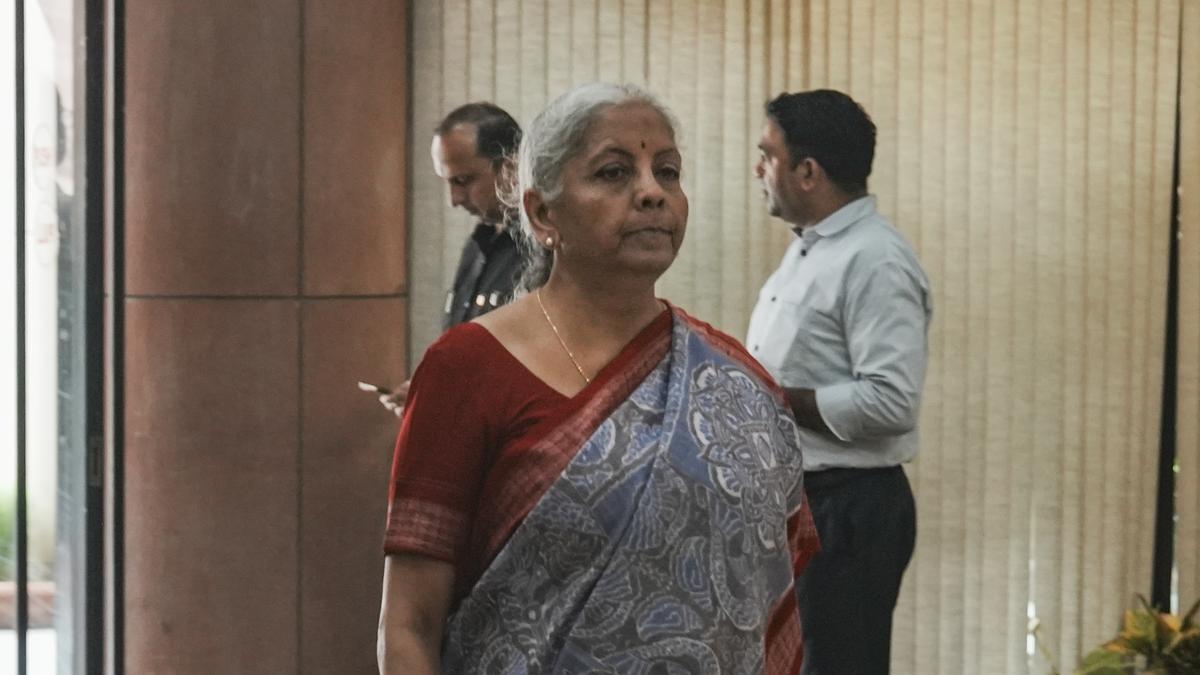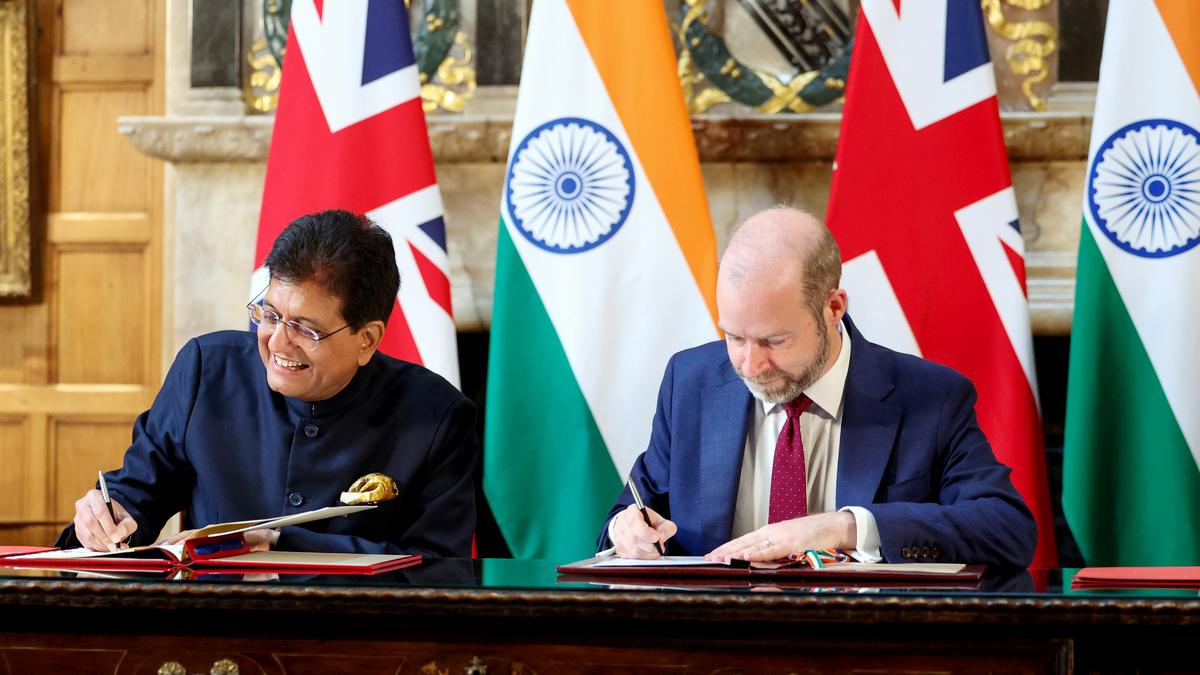Union Finance Minister Nirmala Sitharaman. File.
| Photo Credit: PTI
Union Finance Minister Nirmala Sitharaman on Wednesday (August 20, 2025) addressed the three Groups of Ministers set up by the Goods and Services Tax (GST) Council to emphasise the importance of the Centre’s proposed reforms to the GST system, including the rate rationalisation efforts.
The three GoMs are on Compensation Cess, Health and Life Insurance, and Rate Rationalisation.
How will the reformed GST impact India’s economy | In Focus podcast
“During the meeting, the Union Finance Minister emphasised that the proposal by the Central Government is with a vision to usher in the next generation of GST reforms in India’s journey towards becoming Atmanirbhar Bharat,” the Ministry of Finance said in a post on X.
“The Central Government remains committed to building a broad-based consensus with the States in the coming weeks to implement the next generation of GST reforms in the spirit of cooperative federalism,” the post added.
The reforms proposed by the Centre, it went on to explain, were based on three pillars. The first, of structural reforms, seeks to correct inverted duty structures, resolve classification issues, and ensure stability and predictability in GST policy.
The rate rationalisation pillar is aimed at “providing greater relief to the common man, farmers, the middle class and MSMEs”, the Ministry of Finance said.
“This would enhance affordability, boost consumption and make essential and aspirational goods more accessible to a wider population,” it added.
The third pillar — Ease of living—seeks to simplify the GST registration process, ease return filing, and speed up the payment of refunds.
Published – August 20, 2025 05:28 pm IST







